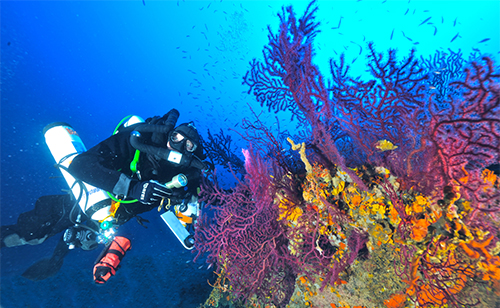Survivor or Statistic… Which One are You?
by Jon Kieren:

Follow the rules – In technical diving there are a lot of them. They are there for a reason, usually because someone (or several people) died. Whether it’s gas volume requirements, gas analysis, cylinder labeling, depth/penetration limitations, equipment requirements, pre-dive checks, equipment maintenance, etc., there simply is not a dive that is worth breaking these rules and risking your life. Technical diving carries enough inherent risks as it is, and these rules are there to help mitigate those risks. Don’t push it, and don’t get complacent.
Keep things simple and conservative – We’ve all read the stories. Divers who tried to go beyond what a reasonable plan would allow and came up short. Keep dive plans and objectives as simple as possible, and plan conservatively.
Stick to your training – You paid an instructor (probably several by this point) a lot of money to train you how to dive, don’t let that money go to waste. What’s the point of training if you’re going to ignore what you were taught anyway? Going beyond the limits of your training can place you in situations you are not prepared to handle, and can (and often does) lead to fatalities. Don’t put yourself in that position, stick to your training.
Practice – Dr. Anders Ericsson’s research on expertise found that it takes 10,000 hours of deliberate practice to become an expert at almost anything. Since then, it has been more refined and determined that this practice must include proper evaluation, feedback, correction, and reward to truly be effective. Try and put that into the context of diving. 10,000 hours of practicing valve drills before you become an expert. You better get in the water.
While 10,000 hours is obviously not a realistic value, it certainly puts things into perspective, doesn’t it? How many of your buddies consider themselves “expert divers?” How many hours do they have under water? The point here is not to shoot anyone down or deflate anyone’s ego, but instead to point out that everyone needs more practice. It is often said that in a true emergency situation, the BEST you can possibly expect to respond is the WORST that you perform in practice. Think about your last skills dive, the worst you performed any of those skills is how you will react in an emergency. Would you survive? Just because you went through a great Deco Procedures course, doesn’t mean you’re now an expert at decompression diving. You have a long way to go, and have only just begun to develop those skills.
Stay calm – In technical diving, panic kills. Plain and simple. If you allow yourself to go into “flight” mode in an emergency, you will become a statistic. That’s pretty heavy stuff considering we’re doing this for fun, right? Well, panic is the brain’s natural response when someone is beyond their comfort zone. A scenario we use to demonstrate the comfort zone with students is to ask them at their most vulnerable moment (maximum depth/penetration, near turn pressure, separated from the team, etc.) to mentally put themselves in the worst possible case scenario, like a catastrophic gas loss or silt out, and pay attention to their heart rate. If your heart starts to race just thinking about it, you’re probably outside of your comfort zone and should turn the dive. Knowing the limits of your comfort zone is extremely important and should be taken seriously on every technical dive. If there are any complications just before or during a dive, you need to re-evaluate your limits knowing that the error chain has already started. Each mistake or problem on a dive adds a link to this chain and reduces your comfort zone, and the likelihood of you staying in control in an emergency begins to vanish. Staying calm and within your comfort zone will drastically increase your chances of survival in an emergency by allowing you to rationally solve the problem instead of bolting for the surface.
We’re all in this to have fun, but chances are we’re going to run into a few problems along the way. As a technical diver you’ve been trained and given the basic tools to resolve those problems. As long as you stay within your comfort zone, keep your skills sharp, follow the rules, and try to keep things as simple as possible, you should be able to keep your name out of the accident reports.

Leave a Reply
Want to join the discussion?Feel free to contribute!